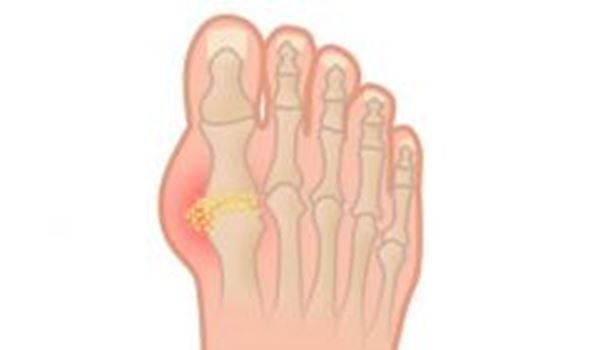Gout
What is Gout?
Gout is a form of arthritis that occurs when there is a build up of uric acid in the body, leading to the formation of urate crystals in the joints. These crystals cause sudden and severe pain, inflammation, and swelling in the affected joint, commonly the big toe. Gout can be a chronic condition and is often associated with lifestyle factors such as diet, obesity, alcohol consumption, and certain medical conditions.

What are the Typical Symptoms?
The symptoms of gout typically include intense joint pain, tenderness, redness, and swelling in the affected area. The pain can be excruciating and may worsen with movement. Gout attacks often occur suddenly and can last for a few days or weeks. Between attacks, individuals with gout may experience periods of remission, where they are free of symptoms.
What Treatments are Available?
Treatment for gout usually involves a combination of medication to manage pain and inflammation, lifestyle modifications, and dietary changes.
Medications commonly prescribed for gout include nonsteroidal anti-inflammatory drugs (NSAIDs), colchicine, and corticosteroids. These medications help to relieve pain and reduce inflammation during gout attacks.
To prevent future gout attacks your GP may prescribe medications that lower uric acid levels in the blood, such as allopurinol or febuxostat. Yearly blood test are then required to check the uric acid levels remain low while on the medication.

How Can I Prevent Gout from Happening?
Lifestyle modifications play a crucial role in managing gout. This may involve maintaining a healthy weight, exercising regularly, limiting alcohol consumption, avoiding foods high in purines (such as organ meats, seafood, and certain vegetables), and staying hydrated.
It’s important for individuals with gout to work closely with health professionals . By effectively managing the condition and making necessary lifestyle changes, it is possible to reduce the frequency and severity of gout attacks, reduce the risk of lasting joint damage and improve overall quality of life.
What are some of the long term implications of gout?
- Increased risk of heart attacks
- Arthritis
- increased risk of kidney disease and kidney stones
- increased risk of prostate cancer
- erctile dysfunction
- underactive thyroid
Page created: 04 September 2020





